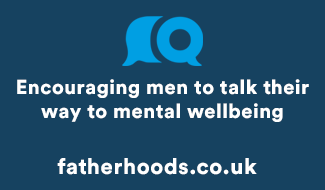If you want to take your case to Court, in most cases (unless you have made an allegation of domestic abuse and have specific evidence in support of the allegation) you will be expected to attend a Meditation Information and Assessment Meeting (MIAM). For anyone wanting to explore whether mediation is right for them, attending a MIAM is a really good place to start.
The MIAM is an individual face-to-face meeting that will take place between you and the mediator. Your ex-partner will not be present at the first meeting. Sometimes, people bring a friend or family member to the first meeting for support.
The mediator will not expect you to attend a joint mediation session. At the first meeting, the mediator will help you to consider whether mediation is right and safe for you and will identify when mediation will or will not be suitable. Where mediation is unsuitable the mediator will make sure you know the alternatives to mediation and will signpost you to appropriate sources of advice and support.
At the MIAM, the mediator will hear about your situation which will include asking about whether domestic abuse has occurred in the relationship. Domestic abuse is ‘any incident or pattern of incidents, of controlling, coercive or threatening behaviour, violence or abuse (whether psychological, physical, sexual, financial or emotional) between individuals who have been intimate partners or family members regardless of gender or sexuality’.
The key message for anyone who has experienced domestic abuse is that family mediation is a voluntary process and a joint session will only take place if you decide, with a mediator, that mediation is right and safe for you and where appropriate, the right safeguards are in place.
Abuse covers a wide spectrum of behaviour including isolated incidents, on-going patterns of behaviour, threats of and actual physical violence. The mediator will discuss with you how the abusive behaviour and it’s impact might influence what happens in any joint mediation session.
If it emerges that you or your children are in immediate risk of harm, the mediator will help you to consider what action to take. Sometimes, it might be necessary for the mediator to break their usual duty of confidentiality to ensure the safety of a child or an adult. In these circumstances, mediation would not be appropriate.
It is important that in the mediation setting, you not only feel safe but also comfortable and free to speak openly and honestly so that any discussions are balanced. If you would feel unsafe, fearful or intimidated by coming to a joint mediation session then it might not be suitable for you.
However, even where there has been domestic abuse, some people feel strongly that they want to mediate because of the possible benefits it offers. Mediation can still take place as long as all those involved are willing to participate, and appropriate safety measures can be put in place.
For example, mediation can take place on a ‘shuttle’ basis meaning that you and your ex-partner sit in separate rooms and the mediator moves between you. If you are fearful about coming into contact with the other person outside the joint session, you can arrive and leave at separate times and wait separately. In any mediation, the mediator will ensure that there are ‘ground rules’ to ensure that mediation is undertaken in a respectful and cooperative manner. If the ground rules are broken and the levels of conflict are excessive or harmful, the mediator will intervene and, if necessary, stop the session.
The key message for anyone who has experienced domestic abuse is that family mediation is a voluntary process and a joint session will only take place if you decide, with a mediator, that mediation is right and safe for you and where appropriate, the right safeguards are in place. Mediators are trained, skilled and experienced in working with families where there has been domestic abuse. Your safety, and the safety of your children will be any mediator’s main concern.
Additional Reading/Resources
If you are facing court alone many people have found Lucy Reed’s book, ‘Family Court Without A Lawyer’ particularly useful.
You may also find our page on How To Tell Your Children You Are Divorcing – Recommended Books useful.
The Handover Book by Ashley Palmer is a unique and simple communication book for separated families. It will allow them both to always be aware of what is happening in their children’s busy lives as they go from one household to another. It’s a way of communicating the important things they both need to know about their children, while keeping your relationship as parents friendly and calm.
Charlotte Friedman has written Breaking Upwards – How To Manage The Emotional Impact Of Separation. Charlotte offers calm, therapeutic advice on everything from how to manage loneliness to letting go of grievance, and draws on illuminating case studies to answer questions such as: How long before I get over this divorce? How do I tell the children? How do I cope with the new partner in my ex’s life?
Posted on March 5, 2018














